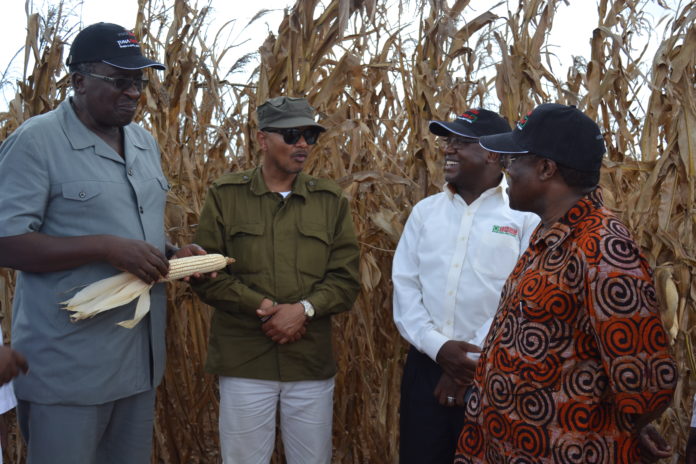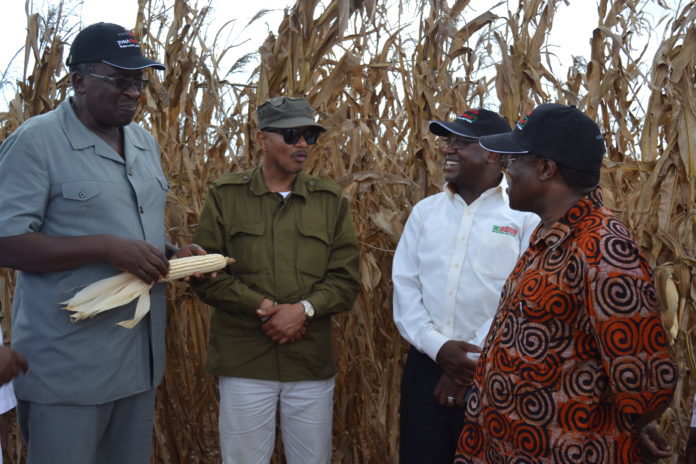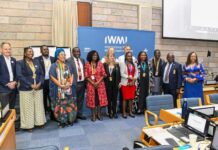|
Getting your Trinity Audio player ready...
|
By Malachi Motano

The government is encouraging farmers to embrace irrigation in crop production to improve their harvests and help solve the current food crisis witnessed in various parts of the country especially in the arid and semi-arid lands (ASAL).
Referring to Galana –Kulalu irrigation project where Maize production is now five times the current national average, Water, and irrigation Principal Secretary (PS) Patrick Nduati, says Kenya has the capacity to produce enough maize for local consumption as well as exporting to the neighbouring countries.
“The 31 bags per acre produced at the Vision 2030 project three times a year, is more than 18 bags produced once a year from Trans Nzoia, the country’s food basket. With projections of 40 bags per acre per season, shows the viability of the project in fixing the shortage of the commodity.” Said Nduati.
He says Kenya uses Ksh 15 billion to import maize and other foods annually while Production at this model farm is able to meet between five and 10 percent of the gap.
According to the PS, if the country is able to produce 100,000 bags, then there would be no need to import the commodity.
Up to 2,500 acres of the 10,000-acre model farm are now under maize plantation. Three varieties of maize under test at the farm have shown the potential of yielding beyond 40 bags per acre.
The Principal secretary says the project needs Ksh 9 billion by March 2017 to fully install infrastructure on the model farm that is now 70 percent complete.
Dr. Julius Muia Vision 2030 Delivery Secretariat Director General, said communities are now able to meet basic needs pay fees for school going children, settle medical bills and put aside funds for alternative investments.
Muia, “Incidences of illegal trade or income generating activities like poaching and charcoal burning have reduced significantly, to highlight huge impact of the project on locals.
According to the director General, better yielding maize varieties projects a food secure nation that would significantly reduce the country’s reliance on maize imports from neighbouring countries in East Africa.
He says more production of maize will avert the cycle of starvation in the area and neighbouring counties. The success of this model farm shows we are headed towards achieving a food secure nation.
National Irrigation Board (NIB) has said locals from Tana River and Kilifi Counties will benefit from more than 60 percent of the harvest from the 2,500 acres to reach close to 500,000 people that were reportedly facing starvation in the Coastal region.














